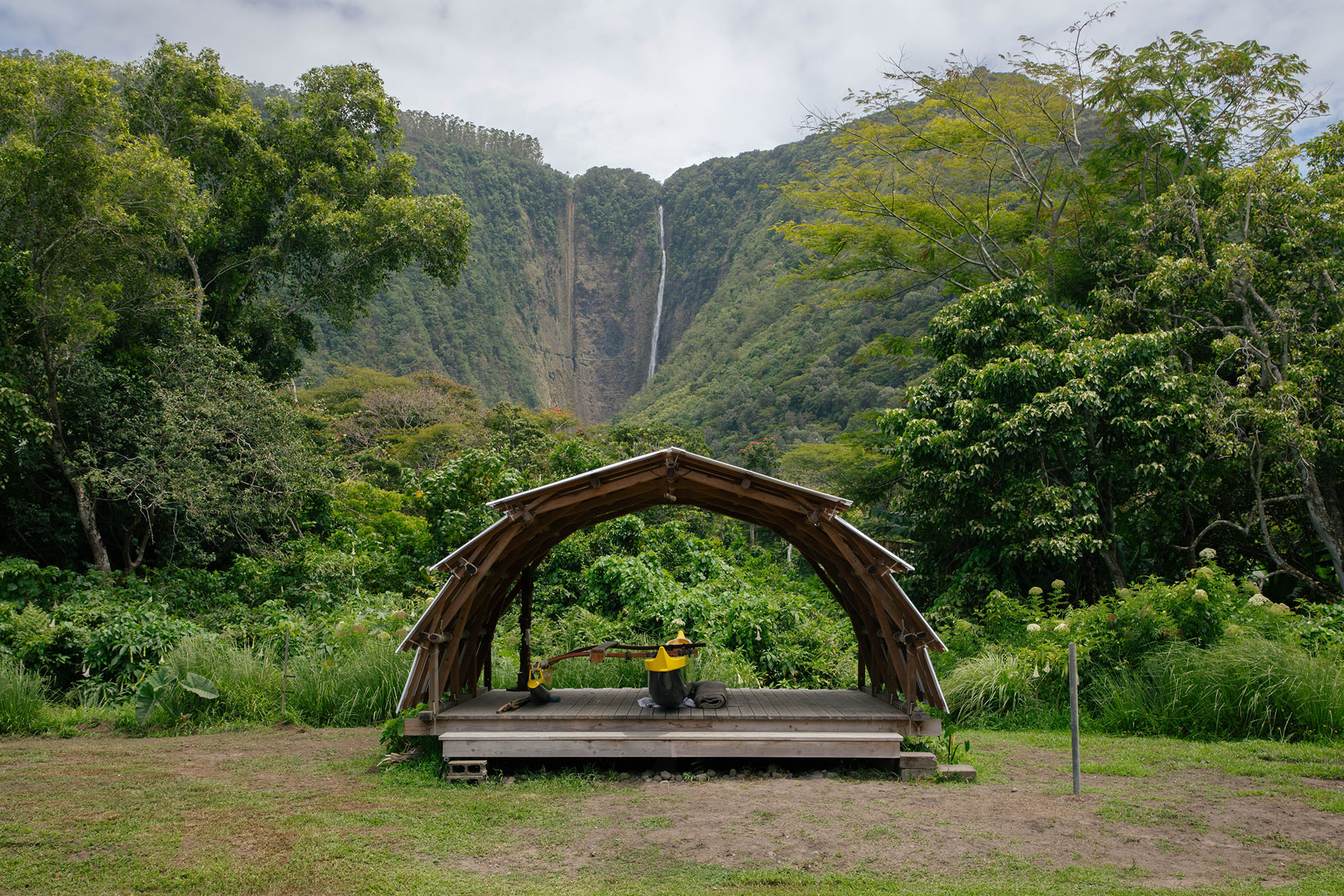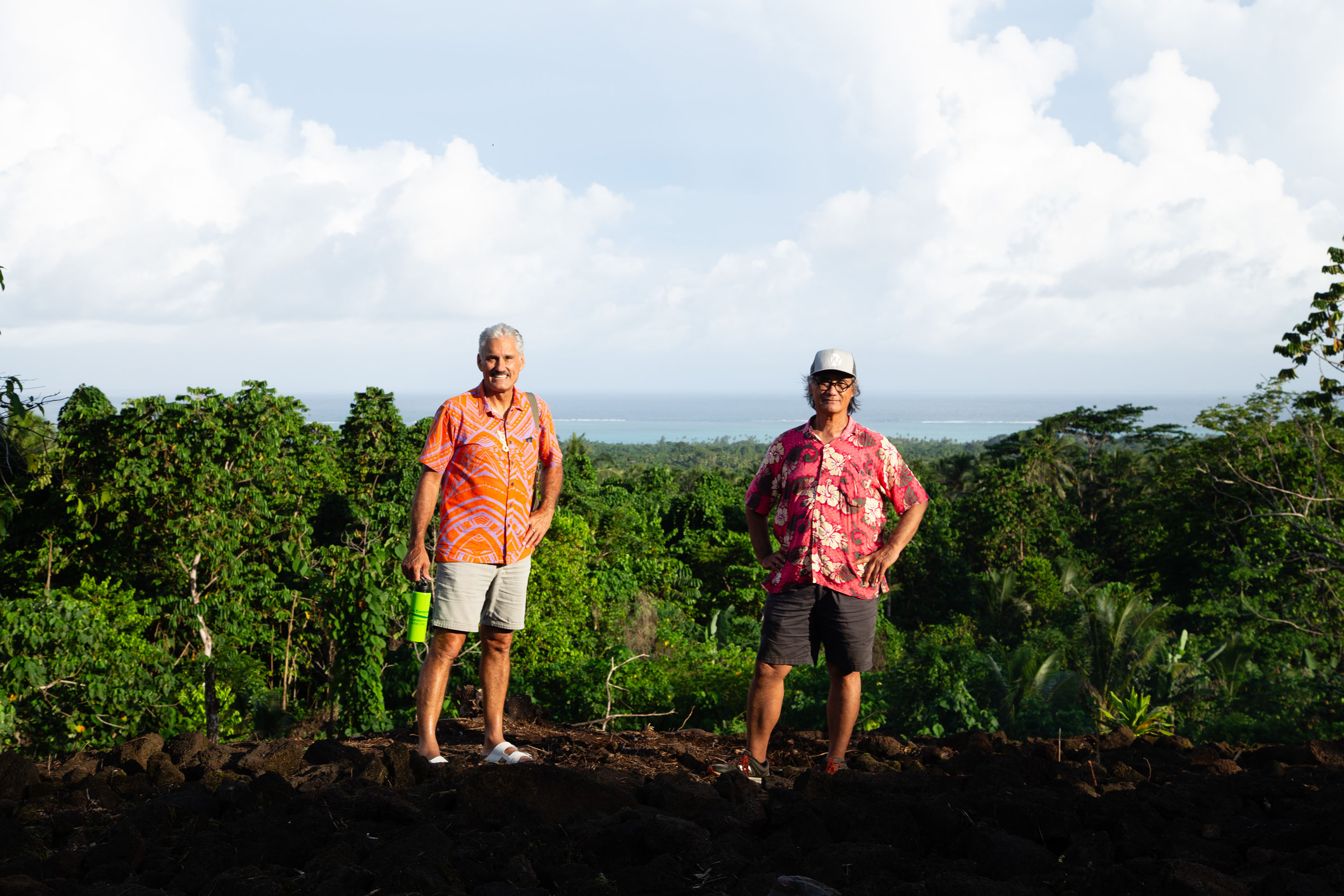

Vā Moana were excited to host Nālani Wilson-Hokowhitu and Arielle Walker as our October Vā Kōrero speakers. Faʻafetai tele lava Nālani and Arielle for your insightful presentations, Samara Alofa and David Feauai-Afaese for your sonic contributions to the space, Ngutu Kākā Gallery for hosting us, and all of our guests. You can read about our speakers and their presentations below:
Nālani Wilson-Hokowhitu (ʻo ia/she/her) is a Kanaka ʻŌiwi, Native Hawaiian, scholar of Critical Pacific and Indigenous Studies presently residing along the shores of te awa Waikato, the Waikato River, in Kirikiriroa, Aotearoa-New Zealand. She is a global citizen with Indigenous, Moana Nui genealogies to Molokaʻi Nui a Hina and Kanakaʻaukai from Kalapana, Hawaiʻi. Nālani is currently Senior Research Fellow at Ngā Wai a Te Tūī, Māori and Indigenous Research Institute and the recipient of a Royal Society of New Zealand Te Apārangi Marsden Fast-Start grant (2021-2024) focusing on retracing the storylines of Pacific women voyagers and navigators.
Her scholarship and creative practice engage moʻokūʻauhau, genealogical connections to the natural world, in an effort to raise global awareness about human and more-than-human relationships, Mana Wāhine, Indigenous and Pacific feminisms, epistemologies, and ontologies that inform critical, innovative and transformative futurities. Her research, curation, documentaries, and visual art add to the growing body of knowledge expressed by Kānaka ʻŌiwi, Moana Nui, and Indigenous peoples working at the interface of social justice and environmental protection of our islands, earth, waterways, and oceans.
Nālani is the editor of The Past Before Us: Moʻokūʻauhau as Methodology (2019) published by the University of Hawaiʻi Press. She is a featured artist in The Contemporary Pacific Journal (2022) and a dialogue participant in the forthcoming issue (2023, TCP 35:1). Navigation between multiple worldviews is a common theme in her scholarship. In particular, the poetry, critical theory, and activism of the late Professor Haunani Kay Trask and Dr Teresia Teaiwa has served as a star line to follow, igniting a ferocity and tenderness that reverberates through a contemporary intellectual genealogy of mana wāhine.
Rebirth of Moana Nui & Ka Pō Hoʻihoʻi: An Exploration of Our Oceanic Potenitalities & Futurities
“We sweat and cry salt water, so we know that the ocean is really in our blood” – Teresia Teaiwa (Hauʻofa, 1998). What does it mean to claim Moana Nui, Tåsi, or the “Pacific” in all its many names, as “Our Ocean?” The opening quote by the late and beloved Teresia Teaiwa inspires us to acknowledge a visceral embodiment of the sea. In my analysis, the quote asserts that the ocean is the pulse that beats through the veins of Indigenous, Moana peoples, fusing genealogical and genetic memories of connection between humans and our more-than-human relations, the living and those who have passed. It is our connections to the ocean and all its inhabitants that ignite a desire to rise. As the tides rise, we rise. Moana Nui rising, we unite to address the challenges caused by dislocations and relocations, global climate change, capitalism, colonization, and militarization of our saltwater home. This presentation will explore the interrelationality between ocean and sky, blood, bones, stones, and stars. In doing so, it will allow the audience to voyage into the multidentionality of the Vā Moana.
Arielle Walker (Taranaki, Ngāruahine, Ngāpuhi, Pākehā) is a Tāmaki Makaurau-based contemporary artist, writer and maker. Her creative practice seeks pathways towards reciprocal belonging through the intersections and connections between land, language, and craft, weaving together tactile storytelling and ancestral narratives. She holds a Bachelor of Visual Arts and a Master of Visual Arts from AUT University, where she is a research assistant with Vā Moana – Pacific Spaces, and is currently working towards a PhD in Visual Art.
Whatu: to see, to weave, stone; ora: life, health.
Working through whakapapa and drawing on Hinekura Smith’s whatuora approach, Arielle’s current research explores how threads of ancestral narratives can be re-storied and restored through ancestral making practices. As Smith proposes, “[a] Whatuora approach does not stop with simply “seeing” the damage caused by colonization, but insists that we actively reclaim and restore, unpick and re-weave, a culturally well and clear vision of our present realities and, importantly, create a vision for the future.” Through her practice, Arielle weaves between words, fibres, and generations of tūpuna wāhine, retracing the lines that connect kuia to mokopuna through shared, lost and re-remembered languages of weaving and whatu.
Vā Kōrero operates as a monthly platform to support the research and practice of cluster members and our extended network. Affiliates, candidates, and wider whānau are invited to share in ceremony, food, and presentations of research; to engage with and seek support/mentorship from knowledge holders, senior academics, and artists alike.


